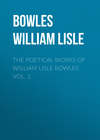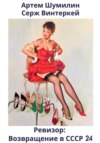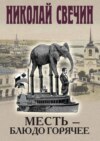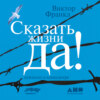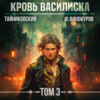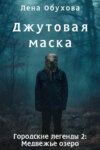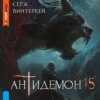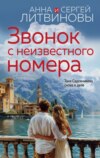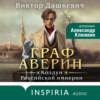Читать книгу: «The Poetical Works of William Lisle Bowles Vol. 2», страница 16
Шрифт:
THE ARK: A POEM FOR MUSIC
MICHAEL, ARCHANGEL
High on Imaus' solitary van,
Which overlooked the kingdoms of the world,
With stature more majestic, his stern brow
In the clear light, the thunder at his feet;
In his right hand the flaming sword that waved
O'er Eden's gate; and in his left the trump,
That on the day of doom shall sound and wake
Earth's myriads, starting from the wormy grave,
The great archangel stood: and, hark, his voice!
AIR
It comes, it comes, o'er cities, temples, towers;
O'er mountain heights I see the deluge sweep;
Heard ye from earth the cry at that last hour?
Heard ye the tossing of the desert deep?
How dismal is its roar!
I heard the sound of multitudes no more.
Great Lord of heaven and earth, thy voice is fate;
Thou canst destroy, as first thou didst create!
He stood and sounded the archangel's trump;
And now a choir of seraphim drew near,
By Raphael led: in sad and solemn strains,
They raised their supplication to Heaven's throne.
CHORUS
O Thou whose mighty voice, "Let there be light!"
Dread Chaos heard, when the great sun from night
Burst forth, and demon shadows fled away,
And the green earth sprang beautiful to day!
Oh! merciful in judgment, hear our prayer;
Behold the world which Thou hast made so fair,
And man the mourner, man the sinner, spare.
GABRIEL (RECITATIVE)
Oh! what a change have sin and sorrow made!
In the beginning, God created heaven
And earth; and man, amid the works of God,
Majestic stood, his noblest creature, formed
In God's own image; and his fair abode
Was visited by seraph shapes of light,
And sin and death were not.
TRIO
Mourn, mourn, ye bowers
Of paradise, ye pleasant hills and woods!
Mourn; for the dreadful voice hath passed that shrunk
Your streams, and withered all your blooming flowers.
And thou, created in God's image, man!
Go forth into the nether world; "for dust
Thou art, and unto dust shalt thou return."
RECITATIVE
So, led by Sin and Death, and his pale troop,
Impatient came, and all this goodly scene,
As at the withering of a demon's curse, was blasted.
Then they two went forth, from whom
Their children sorrow and sin and death derived:
They two went forth into the forlorn world,
Heart-struck, but not despairing.
From that hour
Death's shadow walks on earth, a hideous form,
Saddening the very sun; and giant crimes
Have multiplied, till to the throne of God,
And the serene air of untroubled bliss,
The noise of violence, and the cries of blood,
Have from the ground ascended.
Therefore God
Me hath commissioned to uplift the trump
Of doom, and sweep this world of sin away!
WRITTEN AFTER THE CONSECRATION OF THE NEW CHURCH AT KINGSWOOD
When first the fane, that, white, on Kingswood-Pen,
Arrests, far off, the pausing stranger's ken,
Echoed the hymn of praise, and on that day,
Which seemed to shine with more auspicious ray,
When thousands listened to the prelate214 there,
Who called on God, with consecrating prayer; —
I saw a village-maid, almost a child,
Even as a light-haired cherub, undefiled
From earth's rank fume, with innocent look, her eye
Meekly uplifted to the throne on high,
Join in the full choir's solemn harmony.
Oh, then, how many boding thoughts arose,
Lest, long ere varied life's uncertain close,
Those looks of modesty, that open truth
Lighting the forehead of ingenuous youth —
Lest these, as slowly steal maturing years,
Should fade, and grief succeed, and dimming tears;
Then should the cheek be blanched with early care,
Sin mark its first and furrowing traces there,
With touch corroding mar the altered mien,
And leave a canker where the rose had been;
Then the sweet child, whose smiles can now impart
Joy overpowering to a mother's heart,
Might bring down, when not anxious love could save,
That mother's few gray hairs with sorrow to the grave!
But, hark! the preacher's voice, his accents bland,
Behold his kindled look, his lifted hand;
What holy fervour wakes at his command!
He speaks of faith, of mercy from above,
Of heavenly hope, of a Redeemer's love!
Hence every thought, but that which shows fair youth
Advancing in the paths of peace and truth!
Which shows thy light, O pure religion! shed,
Like a faint glory, on a daughter's head,
Who shall each parent's love, through life, repay,
And add a transport to their dying day!
I saw an old man, on his staff reclined,
Who seemed to every human change resigned: —
He, with white locks, and long-descending beard,
A patriarch of other years appeared:
And thine, O aged, solitary man!
Was life's enchanted way, when life began,
The sunshine on each mountain, and the strain
Of some sweet melody, in every plain;
Thine was illusive fortune's transient gleam,
And young love's broken, but delicious dream;
Those mocking visions of thy youth are flown,
And thou dost bend on death's dark brink alone
The light associates of thy vernal day,
Where are they? Blown, like the sere leaves, away;
And thou dost seem a trunk, on whose bare head
The gray moss of uncounted days is spread!
I know thee not, old man! yet traits like these,
Upon thy time-worn features fancy sees.
Another, or another year, for thee,
Haply, "the silver cord shall loosed be!"
Then listen, whilst warm eloquence portrays
That "better country" to thy anxious gaze,
Who art a weary, way-worn "pilgrim here,"
And soon from life's vain masque to disappear.
O aged man! lift up thine eyes – behold
What brighter views of distant light unfold;
What though the loss of strength thou dost deplore,
Or broken loves, or friends that are no more?
What though gay youth no more his song renews,
And summer-light dies, like the rainbow hues?
The Christian hails the ray that cheers the gloom,
And throws its heavenly halo round the tomb.
Who bade the grave its mouldering vault unclose?
"Christ – Christ who died; yea, rather, Christ who rose!"
Hope lifts from earth her tear-illumined eye,
She sees, dispersed, the world's last tempest fly;
Sees death, arrested 'mid his havoc vast,
Lord, at thy feet his broken weapons cast!
In circles, far retiring from the sight,
Till, undistinguished, they are lost in light,
Admiring seraphim suspend their wings,
Whilst, hark! the eternal empyrean rings,
Hosannah, Lord of lords, and King of kings!
Such thoughts arose, when from the crowded fane
I saw retire the mute, assembled train;
Their images beguiled my homeward way,
Which high o'er Lansdowne's lonely summit lay.
There seemed a music in the evening gale,
And looking back on the long-spreading vale,
Methought a blessing waited on the hour,
As the last light from heaven shone on the distant tower.
ON THE DEATH OF DR BURGESS, THE LATE BISHOP OF SALISBURY
Sainted old man, for more than eighty years,
Thee – tranquilly and stilly-creeping – age,
Led to the confines of the sepulchre,
And thy last day on earth – but "Father – Lord —
Which art in heaven" – how pure a faith, and heart
Unmoved, amid the changes of this life,
And tumult of the world, – and oh! what hope, —
What love and constancy of the calm mind,
And tears to misery from the inmost heart
Flowing – at times, a brief sweet smile and voice
How bland, and studies, various and profound,
Of learned languages – but, ever first,
That learning which the oracles of God
Unfolds, even to the close of life's long day
Thy course accompanies!
But, thou, farewell,
And live – this mortal veil removed – in bliss;
Live with the saints in light, whom Christ had loved.
But pardon us, left in this vale of tears,
For one last tear upon thy cold remains —
Pardon, beloved and venerated shade!
LINES WRITTEN ON FONTHILL ABBEY
The mighty master waved his wand, and, lo!
On the astonished eye the glorious show
Burst like a vision! Spirit of the place!
Has the Arabian wizard with his mace
Smitten the barren downs, far onward spread,
And bade the enchanted palace rise instead?
Bade the dark woods their solemn shades extend,
High to the clouds yon spiry tower ascend?
And starting from the umbrageous avenue
Spread the rich pile, magnificent to view?
Enter! From the arched portal look again,
Back on the lessening woods and distant plain!
Ascend the steps! The high and fretted roof
Is woven by some elfin hand aloof;
Whilst from the painted windows' long array
A mellow light is shed as not of day.
How gorgeous all! Oh, never may the spell
Be broken, that arrayed those radiant forms so well!
EPITAPH ON BENJAMIN TREMLYN, AN OLD SOLDIER, BURIED IN BREMHILL CHURCHYARD AT THE AGE OF 92
A poor old soldier shall not lie unknown,
Without a verse, and this recording stone.
'Twas his in youth o'er distant lands to stray,
Danger and death companions of his way.
Here in his native village, drooping, age
Closed the lone evening of his pilgrimage.
Speak of the past, of names of high renown,
Or his brave comrades long to dust gone down,
His eye with instant animation glowed,
Though ninety winters on his head had snowed.
His country, whilst he lived, a boon supplied,
And faith her shield held o'er him when he died;
Hope, Christian, that his spirit lives with God,
And pluck the wild weeds from his lowly sod,
Where, dust to dust, beside the chancel's shade,
Till the last trumpet sounds, a brave man's bones are laid.
EPITAPH ON ROBERT SOUTHEY
Christian! for none who scorns that holy name
Can gaze with honest eyes on Southey's fame;
Christian! bow down thy head in humble fear,
And think what God-given powers lie silenced here:
Wit, judgment, memory, patience unsubdued,
Conception vast, and pious fortitude.
Learning possessed no steeps, and truth no shore,
Beyond his step to tread, his wing to soar;
His was the historian's pen, the poet's lyre,
The churchman's ardour, and the patriot's fire;
While fireside charities, Heaven's gentlest dower,
Lent genius all their warmth and all their power.
O Church and State of England! thine was he
In living fame, thine be his memory!
Thou saw'st him live, in faith expire,
Go, bid thy sons to follow, and admire!
SONNET
WRITTEN IN A COPY OF FALCONER'S "SHIPWRECK."
What pale and bleeding youth, whilst the fell blast
Howls o'er the wreck, and fainter sinks the cry
Of struggling wretches ere, o'erwhelmed, they die,
Yet floats upborne upon the driving mast!
O poor Arion! has thy sweetest strain,
That charmed old ocean's wildest solitude,
At this dread hour his waves' dark might subdued!
Let sea-maids thy reclining head sustain,
And wipe the blood and briny drops that soil
Thy features; give once more the wreathed shell
To ring with melody! Ah, fruitless toil!
O'er thy devoted head the tempests swell,
More loud relentless ocean claims his spoil:
Peace! and may weeping sea-maids sing thy knell!
ON FIRST HEARING CARADORI SING
Spirit of beauty, and of heavenly song!
No longer seek in vain, 'mid the loud throng,
'Mid the discordant tumults of mankind,
One spirit, gentle as thyself, to find.
Oh! listen, and suspend thy upward wings,
Listen – for, hark! 'tis Caradori sings;
Hear, on the cadence of each thrilling note,
Airs scarce of earth, and sounds seraphic float!
See, in the radiant smile that lights her face;
See, in that form, a more than magic grace;
And say (repaid for every labour past)
Beautiful spirit, thou art found at last!
SALISBURY CATHEDRAL
Here stood the city of the dead; look round —
Dost thou not mark a visionary band,
Druids and bards upon the summits stand,
Of the majestic and time-hallowed mound?
Hark! heard ye not at times the acclaiming word
Of harps, as when those bards, in white array,
Hailed the ascending lord of light and day!
Here, o'er the clouds, the first cathedral rose,
Whose prelates now in yonder fane repose,
Among the mighty of years passed away;
For there her latest seat Religion chose,
There still to heaven ascends the holy lay,
And never may those shrines in dust and silence close!
April 1834.
LOCKSWELL
Pure fount, that, welling from this wooded hill,
Dost wander forth, as into life's wide vale,
Thou to the traveller dost tell no tale
Of other years; a lone, unnoticed rill,
In thy forsaken track, unheard of men,
Melting thy own sweet music through the glen.
Time was when other sounds and songs arose;
When o'er the pensive scene, at evening's close,
The distant bell was heard; or the full chant,
At morn, came sounding high and jubilant;
Or, stealing on the wildered pilgrim's way,
The moonlight "Miserere" died away,
Like all things earthly.
Stranger, mark the spot;
No echoes of the chiding world intrude.
The structure rose and vanished; solitude
Possessed the woods again; old Time forgot,
Passing to wider spoil, its place and name.
Since then, even as the clouds of yesterday,
Seven hundred years have well-nigh passed away;
No wreck remains of all its early pride;
Like its own orisons, its fame has died.
But this pure fount, through rolling years the same,
Yet lifts its small still voice, like penitence,
Or lowly prayer. Then pass admonished hence,
Happy, thrice happy, if, through good or ill,
Christian, thy heart respond to this forsaken rill.
ON MOZART
Oh! still, as with a seraph's voice, prolong
The harmonies of that enchanting song,
Till, listening, we might almost think we hear,
Beyond this cloudy world, in the pure sphere
Of light, acclaiming hosts the throne surrounding,
The long hosannahs evermore resounding,
Soft voices interposed in pure accord,
Breathing a holier charm. Oh! every word
Falls like a drop of silver, as the strain,
In winding sweetness, swells and sinks again.
Sing ever thus, beguiling life's long way,
As here, poor pilgrims of the earth, we stray;
And, lady, when thy pilgrimage shall end,
And late the shades of the long night descend,
May sister seraphs welcome with a song,
And gently say, Why have you stayed so long?
EPITAPH ON JOHN HARDING, IN THE CHURCHYARD OF BREMHILL
Lay down thy pilgrim staff upon this heap,
And till the morning of redemption sleep,
Old wayfarer of earth! From youth to age,
Long, but not weary, was thy pilgrimage,
Thy Christian pilgrimage; for faith and prayer
Alone enabled thee some griefs to bear.
Lone, in old age, without a husband's aid,
Thy wife shall pray beside thee to be laid;
For more than a kind father didst thou prove
To fourteen children of her faithful love.
May future fathers of the village trace
The same sure path to the same resting-place;
And future sons, taught in their strength to save,
Learn their first lesson from a poor man's grave!
April 1835.
ON THE DEATH OF WILLIAM LINLEY, ESQ., THE COMPOSER OF THE MUSIC OF "THE DUENNA," ETC
Poor Linley! I shall miss thee sadly, now
Thou art not in the world; for few remain
Who loved like thee the high and holy strain
Of harmony's immortal master.
Thou
Didst honour him; and none I know, who live,
Could even a shadow, a faint image give,
With chord and voice, of those rich harmonies,
Which, mingled in one mighty volume, rise,
Glorious, from earth to heaven, so to express
Choral acclaim to Heaven's almightiness,
As thou! Therefore, amid the world's deep roar,
When the sweet visions of young Hope are fled,
And many friends dispersed, and many dead,
I grieve that I shall hear that voice no more.
INSCRIBED TO THE MARCHIONESS OF LANSDOWNE
Go to assemblies of the rich and gay,
The blazing hall of grandeur, and the throng
Of cities, and there listen to the song
Of festive harmony; then pause, and say,
Where is she found, who in her sphere might shine,
Attracting all? Where is she found, whose place
And dignity the proudest court might grace?
Go, where the desolate and dying pine
On their cold bed; open the cottage door;
Ask of that aged pair, who feebly bend
O'er their small evening fire, who is their friend;
Ask of these children of the village poor;
For this, at the great judgment, thou shalt find
Heaven's mercy, Lady, merciful and kind.
HYMN FOR MUSIC, AFTER THE BATTLE OF WATERLOO
Perish! Almighty Justice cried,
And struck the avenging blow,
And Europe shouts from side to side,
The tyrant is laid low!
Said not his heart, More blood shall stream
Around my sovereign throne?
He wakes from dire ambition's dream,
Pale, trembling, and alone.
ARIA WITH CHORUS
Triumph! the rescued nations cry,
Triumph! ten thousand hearts reply.
Sad mother, weep no more thy children slain;
The trumpets and the battle clangours cease:
Uplift to heaven the loud, the grateful strain,
And hail the dawn of Freedom and of Peace.
CHORUS
Triumph! the rescued nations cry,
Triumph! ten thousand hearts reply.
ARIA
For joy returned, for peace restored,
Lord of all worlds, to thee we raise,
While Slaughter drops his weary sword,
To thee the hymn of gratitude and praise.
CHORUS
Triumph! the rescued nations cry,
Triumph! ten thousand hearts reply.
INSCRIPTIONS IN THE GARDENS OF BREMHILL RECTORY
ON A TREE COMMANDING A VIEW OF THE WHOLE EXTENT OF BOWOOD
When in thy sight another's vast domain
Spreads its long line of woods, dost thou complain?
Nay, rather thank the God that placed thy state
Above the lowly, but beneath the great!
And still His name with gratitude revere,
Who blessed the Sabbath of thy leisure here.
ON A RURAL SEAT
Rest, stranger, in this decorated scene,
That hangs its beds of flowers, its slopes so green;
So from the walks of life the weeds remove,
But fix thy better hopes on scenes above.
ON THE FRONT OF A HERMITAGE, NEAR A DIAL
To mark life's few and fleeting hours
I placed the dial 'midst the flowers,
Which one by one came forth and died,
Still withering by its ancient side.
Mortals, let the sight impart
Its pensive moral to thy heart!
QUIETI ET MUSIS
Be thine Retirement's peaceful joys,
And a life that makes no noise;
Save when Fancy, musing long,
Wakes her desultory song;
Sounding to the vacant ear,
Like the rill that murmurs near.
THE END
214.The Bishop of Gloucester.
Возрастное ограничение:
12+Дата выхода на Литрес:
27 июня 2017Объем:
300 стр. 1 иллюстрацияАннотация:
Правообладатель:
Public Domain
